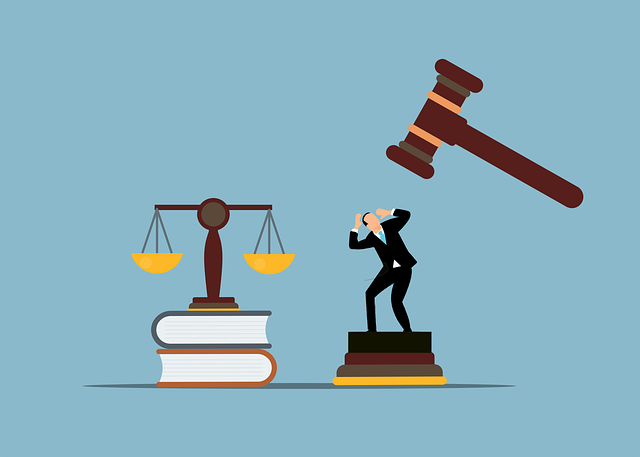This text provides a comprehensive guide to pursuing legal remedies for investors and intellectual property rights holders. For Securities Class Actions, it outlines the process of identifying violations, gathering evidence through investigations, and navigating complex legal procedures. It emphasizes the importance of specialized legal expertise in securities law and successful track records. In the context of Intellectual Property (IP) lawsuits, it details structured steps, including case alignment with IP laws, investigation, evidence collection, and filing a complaint within strict deadlines. The text also highlights the significance of specialized white-collar defense lawyers for both scenarios, emphasizing their role in ensuring positive outcomes.
“Securities Class Actions: Navigating the Complex Landscape of Legal Redress
In today’s financial markets, investors face unique challenges. This comprehensive guide delves into securities class actions—a powerful legal tool for collective redress. We explore the intricate process, from understanding the basis of these suits to deciphering eligibility criteria and key considerations before filing. Learn the steps involved in initiating a successful intellectual property lawsuit, uncover common challenges, and gain strategic insights for navigating this complex legal domain.”
- Understanding Securities Class Actions: A Comprehensive Overview
- Eligibility Criteria for Filing a Securities Class Action
- The Steps Involved in Filing an Intellectual Property Lawsuit
- Key Factors to Consider Before Initiating Legal Proceedings
- Common Challenges and Strategies in Securities Class Action Cases
Understanding Securities Class Actions: A Comprehensive Overview

Securities Class Actions offer a powerful mechanism for investors to hold accountable those who have engaged in fraudulent or unlawful activities in the securities market. When an individual investor’s rights are violated, they may face significant financial losses. However, through class action litigation, these investors can join forces and seek collective redress. This process involves aggregating claims from numerous similarly situated individuals, enabling a single lawsuit to be filed on their behalf.
Understanding how to initiate this legal process is crucial for anyone considering taking action against wrongdoers in the financial sector. The first step is to identify the potential violation of securities laws or regulations, gathering evidence and consulting with experienced legal professionals. Once the basis for the suit is established, a comprehensive investigation into the facts and circumstances begins. This includes reviewing relevant documents, interviewing witnesses, and reconstructing financial transactions. Throughout this investigative phase, an attorney dedicated to his clients will navigate all stages, ensuring a thorough understanding of the law and its application to the case. With an unprecedented track record in securities class actions, legal experts can guide investors through the complex landscape, ultimately pursuing the best possible outcome for their interests.
Eligibility Criteria for Filing a Securities Class Action

When considering a Securities Class Action, understanding the eligibility criteria is paramount. To file such a lawsuit, plaintiffs must first establish that they have suffered an economic loss as a result of securities fraud or violations of federal and state laws. This typically involves demonstrating that they purchased or acquired securities within a defined period, experienced a decline in the value of their investment, and incurred damages due to the defendant’s misconduct. Unlike individual claims, class actions are brought on behalf of a larger group of investors who share similar circumstances, aiming for collective redress.
The process begins by thoroughly evaluating the facts and identifying potential legal grounds for the suit. This includes gathering relevant documents, conducting interviews, and analyzing market data. Once a solid case is built, the next steps involve selecting counsel with expertise in intellectual property laws and complex litigation, preparing a detailed complaint outlining the allegations, and seeking court approval to proceed as a class action. With an unprecedented track record of success, corporate and individual clients alike have found effective representation in navigating all stages of the investigative and enforcement process.
The Steps Involved in Filing an Intellectual Property Lawsuit

Filing an Intellectual Property (IP) lawsuit involves a structured process designed to protect your rights and seek justice. The first step is to carefully assess whether your case aligns with IP laws, encompassing trademarks, copyrights, patents, or trade secrets. Engaging a specialized lawyer with expertise in white-collar defense and a proven track record in IP litigation is paramount for navigating this complex landscape. They will conduct a thorough investigation, gathering evidence to strengthen your claim.
Once ready, you’ll file a complaint with the appropriate court, outlining the alleged infringement and seeking relief. This may include damages, an injunction to stop the infringing activity, or both. Throughout the process, you must comply with strict deadlines and legal requirements. A successful IP lawsuit not only compensates for losses but also serves as a powerful deterrent, safeguarding your creative works and innovative ideas from unauthorized use.
Key Factors to Consider Before Initiating Legal Proceedings

Before initiating legal proceedings for securities class actions, several key factors must be carefully considered. First and foremost, it’s crucial to assess the strength of the case, evaluating the merits of the claims and the likelihood of success in court. This involves a thorough review of relevant facts, laws, and previous case outcomes related to white collar and economic crimes. Additionally, understanding the potential costs, both financial and temporal, associated with litigation is essential for making an informed decision.
The steps to file an intellectual property lawsuit play a significant role here. In the context of securities class actions, this includes gathering compelling evidence, identifying all parties involved, and ensuring compliance with strict filing deadlines. Engaging experienced legal counsel specialized in general criminal defense or white collar defense can significantly enhance the chances of a positive outcome. Remember, navigating these complex legal landscapes demands expertise and strategic planning to protect the interests of all stakeholders.
Common Challenges and Strategies in Securities Class Action Cases

Securities class action cases present unique challenges due to their complexity and the high stakes involved. One significant hurdle is the intricate nature of financial markets and the need for robust evidence to support claims. Plaintiffs’ attorneys must navigate through a web of legal and factual issues, including understanding complex securities regulations, analyzing market trends, and identifying the specific harm suffered by each class member. This often requires extensive document review, expert testimony, and a deep dive into financial records to uncover potential wrongdoing.
To overcome these challenges, effective strategies are essential. A well-defined case theory, based on solid legal grounds, is crucial. Attorneys should focus on exposing the defendant’s alleged misconduct, such as fraud or insider trading, through comprehensive disclosures and detailed fact presentations. Additionally, utilizing innovative discovery techniques, like deposing key individuals within the company or examining financial institutions, can yield valuable insights. Moreover, coordinating with other class action cases across the country, especially those involving white-collar and economic crimes, can lead to more significant settlements for clients.
Securities class actions play a vital role in protecting investors’ rights and ensuring corporate accountability. By understanding the eligibility criteria, following the steps to file an intellectual property lawsuit, and considering key factors before initiating legal proceedings, individuals can effectively navigate these complex cases. While challenges abound, recognizing common strategies employed in securities class action cases empowers stakeholders to forge powerful legal paths, ultimately revolutionizing corporate governance and enhancing investor protection in today’s digital era.






